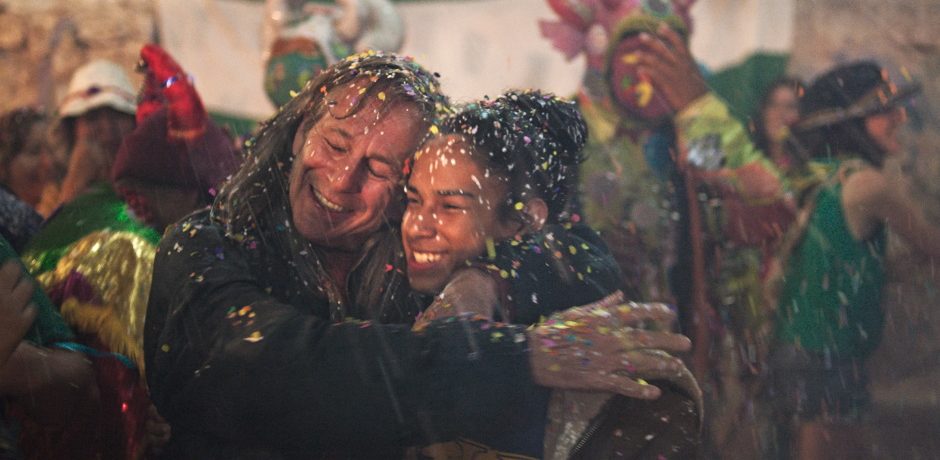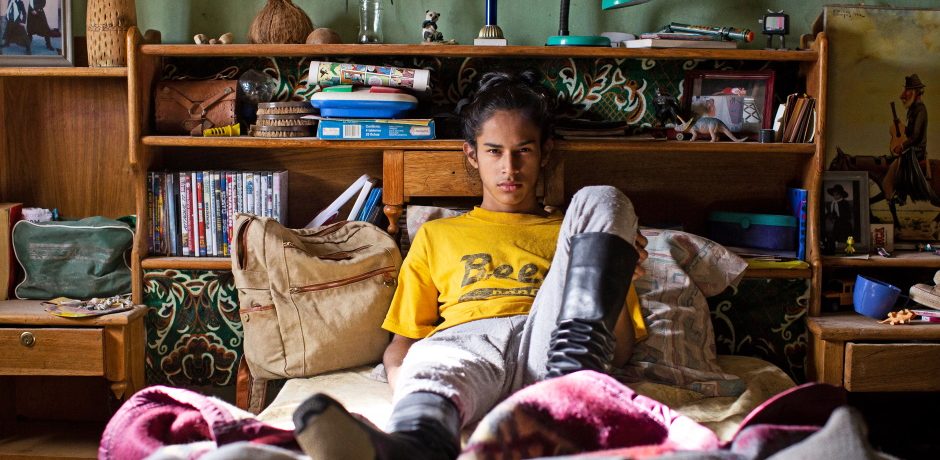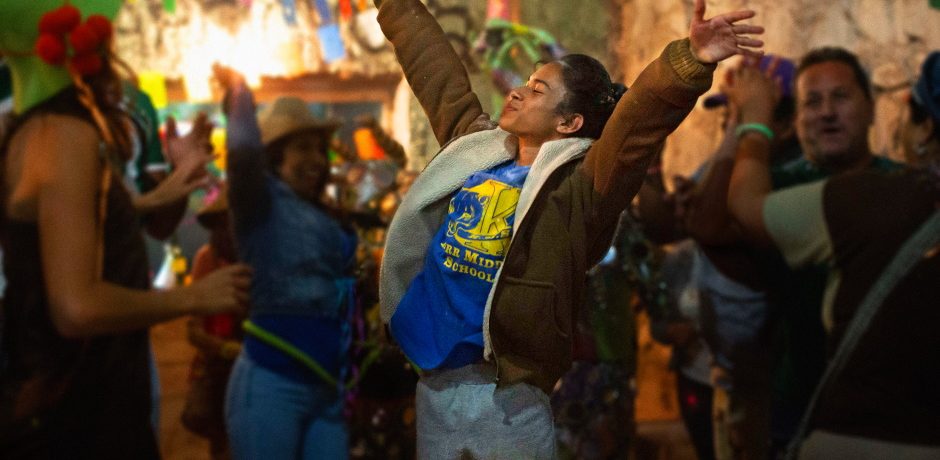I think it is clear why Karnawal, directed by Juan Pablo Felix, has won national recognition. From the complex characterisation to the deep historical context, this film was bursting with music, symbolism, dance and family dynamics which challenge the nuclear norms. I think this film is heavily based on a family’s lack of communication and how that affects a young boy’s journey into becoming an adult.
The film follows Cabra, a young quiet teenager on the cusp of adulthood. He lives with his mum on the Argentina- Bolivia border in South America. Cabra is a Malambo dancer, which is a native male dance involving energetic tap dancing. His ex-convict farther has just been released from prison for a few days and as Cabra focuses on his upcoming Malambo competition, he embarks on a journey physically and metaphorically through his complicated family life.
There are three main characters in this film: Cabra (Martin Lopez Lacci), his mum Rosairo (Monica Lairana) and his dad El Corto (Alfredo Castro). Lacci’s performance was exquisite considering the level of intensity shown in the dance sequences. Not only was he a talented dancer but the role he played meant his body language and mannerisms were relied heavily upon to communicate his feelings to the audience. Part of the reason this family is so broken is because no one listens to each other, which is directly addressed in the film. I think the fact there is such a lack of dialogue, especially from our main character, emphasizes this perfectly.
Castro, a well-known Chilean actor, takes on the role of Cabra’s corrupt farther with the performance challenges that that brings, such as depicting care and violence towards his son. I think his character is deliberately ambiguous and an awful lot of the troubles that the family gets into are directly related to his choices throughout the film. However, there are moments of caring shown in the film which I believe makes this family so much more realistic. The full depth of complex emotions is on display here. Unfortunately for Rosairo, a lot of her character traits are based on the men in her life dominating her. Even though she raised her son independently, her relationship with him is disconnected. Cabra and his mum often obey the people around them. When they do disobey, they are ignored, or in Cabra’s case, physically abused. However, Cabra’s youthfulness, independence and maturity enhance his awareness of the failings of the adults around him, allowing him to break the cycle and make his own way in the world.
The production side of this film is fantastic. The shots used to show Argentina are huge open landscapes framed by colourful skies. The establishing shots juxtapose the intimate close-up shots of Cabra which is frequently where the audience’s attention is. So when we experience the mass space in the landscape shots it impacts our loss of intimacy. A lot of this film sees the characters travelling in buses, cars and even on foot. They travel as a family on a road in open endless countryside. Representing their struggle to navigate being a family and what that means to each of them. The characters are frequently lost or don’t know where they are. I think this symbolizes how they are all on a journey to find themselves or each other. It is up to the individual audience member to decide whether they find either of those things.
It is interesting to note that the film is set during carnival time. Carnivals are a representation of colour, movement, dance and complete freedom of expression, possibly a true self that Cabra longs for. In the fun, bustle and excitement of the carnival the family have a brief moment of connection. It could also be read as a moment of nostalgia for what was and what could have been. There are smaller details in the production which I think are essential to understanding the main themes of the film as a whole. The consistent unanswered phone in the first half of the film could be seen as Cabra being disconnected from himself and unavailable. But after being on a journey with his family where he has time to really see his role models for who they are, he is able to become an adult and separate himself from those around him.
Cabra has grown up mainly without a consistent and stable farther figure, but he found a passion for dance. The Malambo was the battle ground for men to prove themselves, the best dancers gaining recognition due to the difficulty of the moves. Unfortunately for Cabra, his family is not good at supporting him in his passion, and he is the singular driving force behind getting to the big competition. When he is on stage dancing he is seen, heard and given the attention that his family doesn’t provide. This is a very interesting contrast to the violence shown by his father and his mother’s boyfriend, the two main role models in his life. There is an aspect of machismo explored in this film, the sense of being “manly” and self-reliant, that’s shown most often in the relationship between Cabra and his father. It reminds me of the much earlier film City of God, which has much more excessive violence and is set in the slums of Rio. However, both of these films follow a main character that prioritises a creative passion, and in both cases it is that passion that breaks the cycle of violence.
I think this film has incredible depth and a social, historical and political context which is not only relevant, but potent to modern audiences. I would highly recommend watching this film, if not for the dissection of what it is to be part of a family, then for the dance, music and colour. This film is so rich in its visuals that it’s easy to get lost in the small details in every shot.
By Megan Heald, HOME Young Reviewer


